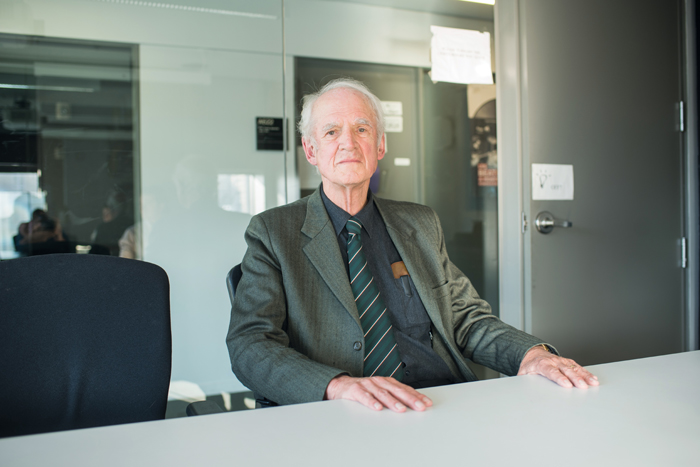On Oct. 12, philosopher Professor Emeritus Charles Taylor delivered the 2017 Beatty Memorial Lecture “The Challenge of Regressive Democracy,” at Pollack Hall. Taylor discussed recent nativist and populist waves in Western politics and their impact on major events such as Brexit and the 2016 general election in the United States. A McGill alumnus,Taylor’s career has spanned over 50 years, during which he has published over a dozen books and essays, including the influential works of philosophy Sources of the Self and A Secular Age.
In an interview with The McGill Tribune prior to his lecture, Taylor discussed the causes of the wave of nativism sweeping Western democracies. While nativism explicitly signifies preferential treatment of those native-born in a country, Taylor explained what he considers a trend similar to nativism that accompanies these movements, narrowing the definition of who is really a member of the society.
“[Nativism is] the idea that some of us are the real Americans, some of us are the real French, and the other ones are really a danger to us,” Taylor said.
Taylor also acknowledged that nativism could hold influence in Canada.
“Well, perhaps not Canada, and perhaps not even Quebec, is totally succumbing [to nativism],” Taylor said. “But let’s say there could be some gains in Quebec on the part of Parti Québécois and [the Coalition Avenir Québec] CAQ who have both been leaning in this direction. That is they are trying to surf on certain deep fears and prejudices against a segment of the population.”
Taylor began his lecture by noting that the idea of democracy representing constant progress toward a more just society is a misconception. Yet, in his time as a scholar, he’s grown to view this reality with optimism.
“Democracy is not an escalator going up,” Taylor said. “Democracy is a progressive struggle. If you believe in the [progressive] escalator, it sounds devastating. If you cease believing in the escalator, it could even be exhilarating.”
According to Taylor, the word democracy has two meanings. One can lead to power sliding from the common people to the elites.
“Democracy is actually going to be understood as the interpretation of two concepts with the same word,” Taylor said. “The concept of the people as a whole, all embracing, and the concept of the people as those who are disadvantaged, because they are not part of the elite [….] Among the countries that we think of as democracies in that sense, big issues arise as to the degree of elite control [….] And this is something that can never be resolved once and for all.”
Taylor’s words left a strong mark on those who watched him. In a message to the Tribune, Jing Ming Yuan, U2 Engineering student who attended the lecture, expressed his agreement with Taylor’s points about democracy as an escalator.
“I think [Taylor] made a very good point when he stated that democracy is not a one-way escalator always going forward,” Yuan wrote. “There is no natural law stating that political institutions would invariably evolve to become, say, more tolerant […] although we tend to think that the present is better than the past, we should acknowledge the possibility that even the most democratic governments in the world can, at times, slide backward and become more unequal and intolerant.”
McGill Philosophy Professor Sarah Stroud also found both Taylor’s presence and insight to be valuable.
“Charles Taylor is a towering philosopher and public intellectual,” Stroud wrote in a message to the Tribune. “His inspiring vision of the democracy we could have will help us right the ship, currently listing dangerously.”








